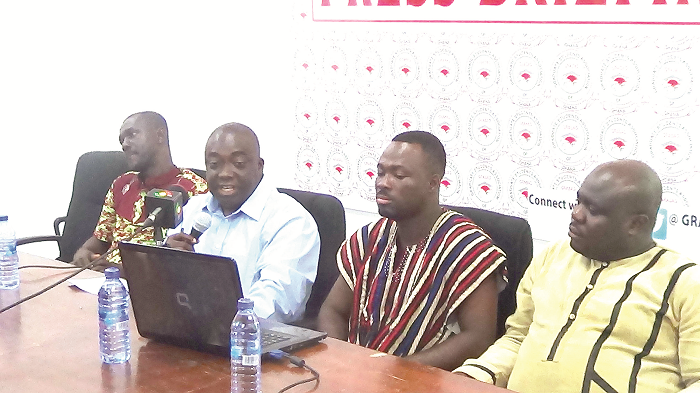
‘Formulate policies to foster collaboration among universities’
Stakeholders and regulators in education have been called upon to formulate policies that will foster collaboration among tertiary institutions and also redesign the curriculum of tertiary institutions to reflect modern demand.
Advertisement
A research fellow at the University of Cape Coast (UCC), Dr Michael Boakye-Yiadom, who made the call in Accra last Wednesday, observed that the use of the traditional method of lecturing in universities ought to be replaced with innovative teaching methods that would enhance students’ participation.
“If we continue to use a curriculum and teaching methodologies that train students to graduate from the university only to join unemployed graduates associations, then we are a failed country. The modules used in our tertiary institutions ought to be innovative so as to equip students with the right knowledge that will make them problem-solvers and good leaders at various levels,” he said.
Dr Boakye–Yiadom was speaking at the maiden press briefing held by the Graduate Students Association of Ghana (GRASAG), during which issues that bordered on strategies to improve upon tertiary and graduate education were discussed.
Held on the theme “Enhancing Graduate Education in Ghanaian Tertiary Educational Institutions: Implications for Practice”, drawbacks to graduate education, such as inadequate funding for research, lack of mentorship for graduate students and inadequate opportunities for practical application of knowledge, were highlighted.
Innovation
Dr Boakye-Yiadom urged the management of universities to devise innovative ways of making funds available for graduate research, adding that the best way by which that could be done was through internally generated funds (IGF).
Touching further on collaboration among universities, he observed that there ought to be an opportunity for students to take transfer from one university to another to continue with their courses.
“Our universities should not be acting like silos in the management of students. It should be possible for our tertiary institutions to interconnect and share information rather than seeing themselves as competitors because over-concentration on competition does not make room for sharing of knowledge,” he added.
Community service
He observed that to make graduate education relevant to the society, GRASAG should focus its attention on community service, adding that it was only when the knowledge they acquired was put to good use in the communities that their relevance would be felt.
The National Vice-President of GRASAG, Mr Ernest Obeng, observed that the student body was committed to using a series of platforms to advocate and engage stakeholders in education to ensure that a conducive environment was created for improved academic work.



